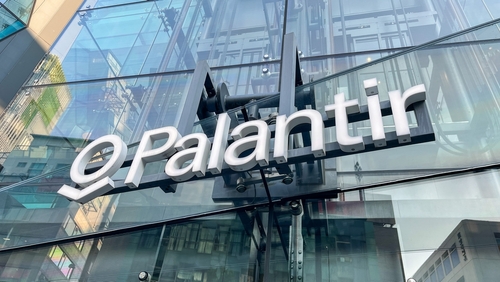Up 288%, Is Palantir Stock a Buy?

With shares up 288% year to date, Palantir (NYSE: PLTR) is one of 2024's best-performing artificial intelligence (AI) stocks, easily beating out hardware giant Nvidia (up 188%). But do this data analytics company's fundamentals justify its $140 billion market cap? Let's dig deeper into Palantir's situation to determine if the stock is still a good buy.
Analysts remain optimistic about AI
Roughly two years since the launch of OpenAI's ChatGPT in late 2022, analysts remain optimistic about the AI industry. According to a report from Bain & Co. released in September, the AI revenue opportunity could grow by 40% to 55% annually from $185 billion last year to a range of $780 billion to $990 billion by 2027 as companies leave the experimental phase and begin to incorporate the technology into their actual operations.
Palantir is positioned to monetize this trend better than most. As a big data analytics company, its business involves synthesizing large volumes of information to help clients discover trends and detect problems like fraud. AI large language models (LLMs) can make this process work in real-time scenarios like combat or law enforcement missions.
In 2023, Palantir generated sales of $2.23 billion. And in a best-case scenario where it matches Bain's highest projected AI revenue growth rate of 55%, the company's top line could jump to $12.87 billion by 2027. In reality, management expects to generate $2.8 billion to $2.9 billion in 2024 revenue, implying a 26% growth rate.
That said, the generative-AI-specific parts of Palantir's business are likely growing faster than the total. And this could eventually cause Palantir's overall growth rate to accelerate over the coming years.
Could Trump be a game changer?
According to the Financial Times, Palantir has added a whopping $23 billion to its market cap since Donald Trump won the presidential election on Nov. 5. Investors seem to believe the company will benefit from increased defense and law enforcement spending under the new administration. However, this narrative looks overblown.
Palantir is already involved in major global conflict zones like Eastern Europe, where it helps the armed forces of Ukraine with military targeting, and the Middle East, where it provides Israel with "battle tech."
However, it is important to note that Trump has pledged to wind down both of these conflicts, claiming that he would end the Ukraine war in one day, and reportedly telling Israeli Prime Minister Benjamin Netanyahu to wrap up the war in Gaza before he enters office. It doesn't make much sense for investors to bid up Palantir stock in anticipation of military-related spending that probably won't materialize.

Image source: Getty Images.
Palantir could play a role in Trump's deportation efforts through Falcon, a contract that provides data analytics to assist Immigration and Customs Enforcement (ICE) with deportations. But this deal only generated $127 million between 2013 and 2022, which isn't a game changer. Business Insider also reports that ICE may be working on switching to a custom-built replacement tool called Raven.
Palantir's valuation is too high to defend
In the fourth quarter, Palantir's revenue grew 44% year over year to $499 million, with a solid showing for its U.S. commercial segment, as more corporate clients take advantage of its AI solutions. The company is also reasonably profitable with adjusted earnings before interest, taxes, amortization, and depreciation (EBITDA) rising 39% to $283.6 million.
To be fair, Palantir's results are good. And growth could accelerate if the AI industry lives up to the most optimistic analyst projections. However, this isn't guaranteed, and the stock isn't reflecting that uncertainty.
With a forward price-to-earnings (P/E) multiple of 141, Palantir's shares are over 6 times more expensive than the S&P 500 estimate. And investors should consider taking profits before it's too late.







